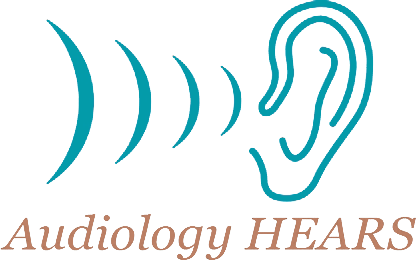Hearing aids can improve quality of life by enhancing communication and hearing. A common question among hearing aid users is, “How long do hearing aids last?” Understanding the lifespan of these devices, as well as the factors that influence their longevity, can help you make informed decisions about maintenance, replacement, and care.
Typical Lifespan of Hearing Aids
The average lifespan of hearing aids is generally between three to seven years. However, this range can vary significantly based on several factors, including the type of hearing aid, the environment in which it is used, and how well it is maintained. Here’s a closer look at the different aspects that can influence the longevity of your hearing aids:
- Type of Hearing Aid: Different styles of hearing aids have varying lifespans. For example, behind-the-ear (BTE) hearing aids tend to last longer than in-the-ear (ITE) models due to their design and placement.
- Technology Level: Hearing aids with advanced technology and features may have a shorter lifespan compared to basic models, primarily due to the wear and tear on more complex components.
- Usage Patterns: Hearing aids worn constantly and in demanding environments may wear out faster than those used less frequently.
Factors Affecting the Longevity of Hearing Aids
Environmental Conditions
- Moisture: Exposure to moisture can significantly reduce the lifespan of hearing aids. Humid climates, sweating, or accidental water exposure can damage internal components.
- Temperature: Extreme temperatures can affect battery life and the performance of your hearing aids. Avoid leaving them in very hot or cold environments.
- Dust and Debris: Dirt and dust can clog the microphone and other small parts, affecting the device’s functionality.
Maintenance and Care
- Regular Cleaning: Keeping your hearing aids clean is very important and can extend the lifespan of your devices. Regularly remove earwax, dust, and debris that can accumulate and cause malfunctions.
- Battery Care: Properly handling and storing batteries can prevent corrosion and leakage, which can damage hearing aids.
- Professional Servicing: Regular check-ups with your hearing health specialist can catch potential issues early and ensure your devices are working well.
Technological Advances
- Software Updates: Keeping the software of your hearing aids up to date can enhance performance and extend their usefulness.
- New Features: As technology advances, newer hearing aids offer improved features and better sound quality, which might make older models feel obsolete sooner.
Signs It’s Time to Replace Your Hearing Aids
Recognizing when it’s time to replace your hearing aids can save you from prolonged frustration and subpar hearing experiences. Here are some signs to watch for:
- Frequent Repairs: If your hearing aids require frequent repairs, it might be more cost-effective to replace them.
- Reduced Sound Quality: Noticeable declines in sound quality, such as persistent static or distortion, can indicate that your hearing aids are nearing the end of their lifespan.
- Connectivity Issues: Problems with Bluetooth or other wireless functionalities may suggest that your hearing aids are outdated.
- Visible Damage: Cracks, discoloration, or other physical damage can affect performance and may not be worth repairing.
- Battery Life: If you notice that batteries need to be replaced more frequently, it could be a sign that the internal components are wearing out.
- Limited Features: Older hearing aids may lack the latest features that enhance hearing experiences, such as advanced noise reduction, directional microphones, or smartphone connectivity.
- Incompatibility: As new technologies emerge, older models may not be compatible with current devices and applications, limiting their functionality.
Tips to Extend the Life of Your Hearing Aids
Taking good care of your hearing aids can help you get the most out of them. Here are some practical tips to prolong your hearing aid’s lifespan:
- Daily Cleaning: Wipe down your hearing aids daily with a soft, dry cloth. Use a small brush or pick to remove any earwax or debris from the microphone and receiver.
- Dry Storage: Store your hearing aids in a dry, cool place when not in use. Consider using a dehumidifier designed for hearing aids to prevent moisture buildup.
- Gentle Handling: Avoid dropping or mishandling your hearing aids. When inserting or removing them, do so over a soft surface.
- Battery Maintenance: Replace batteries as needed and remove them if you won’t be using your hearing aids for an extended period. This can prevent battery leakage and corrosion.
- Professional Cleaning: Schedule regular professional cleanings and check-ups with your hearing health professional. We can identify and address potential issues before they become major problems.
Ensuring Long-Term Hearing Aid Performance
Visit us today for more tips on how you can extend the life of your hearing aids. If you think you may need new devices, check out our selection of hearing aids.
